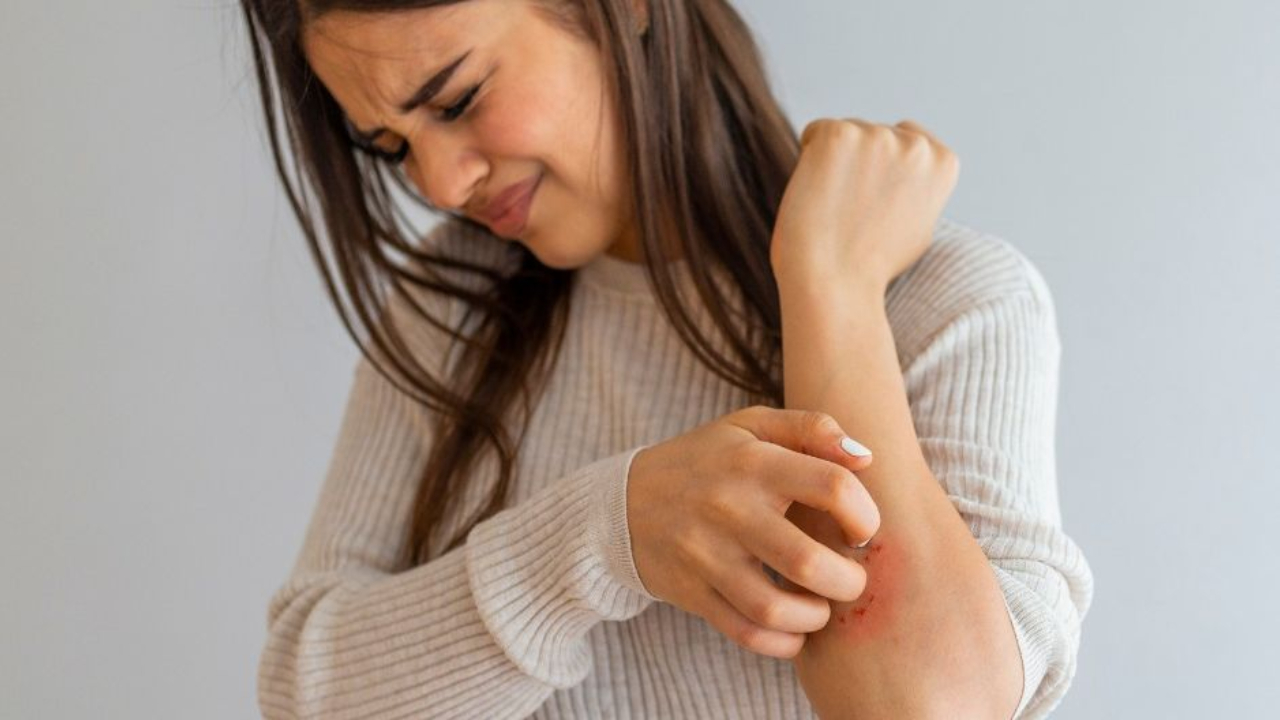Psoriasis and Gut Health: How Microbes Influence Skin Inflammation
Jul 24, 2025
Psoriasis often feels deeply personal, a condition of the skin that reveals itself through visible patches and discomfort. Yet research increasingly reveals that its roots reach far beneath the surface, into the rich ecosystem of microbes in the gut.
A compassionate, science-driven approach demonstrates how attending to the inner world can help alleviate inflammation and promote clearer skin.
A Biological Bridge Between Gut and Skin
A recent clinical study revealed hidden inflammation in the small intestine of individuals with mild to moderate psoriasis, including increased gut permeability, often referred to as “leaky gut,” even when no visible intestinal issues were apparent on gastroscopy.
This barrier disruption allows microbial compounds to enter the bloodstream, triggering immune responses in distant tissues, including the skin.
Notably, researchers found an overlap between immune cells in intestinal mucosa and those in psoriatic lesions – a striking indication of the gut-skin connection through immune pathways, according to Immunopaedia.org.
The Microbial Puzzle: Dysbiosis and Inflammation
“Dysbiosis” describes an imbalance in gut microbes. In psoriasis, studies consistently find:
- A noticeable drop in microbial variety, especially among two dominant gut bacterial groups, Firmicutes and Bacteroidetes. These families help regulate inflammation and nutrient absorption. An imbalance here can weaken gut resilience and trigger immune overactivity, including in the skin. A recent study published in Frontiers in Cellular and Infection Microbiology details how these shifts appear consistently in people with psoriasis, offering insight into how microbial loss may drive disease flares.
- Significantly reduced levels of anti-inflammatory gut bacteria, especially Faecalibacterium prausnitzii. This microbe plays a key role in producing butyrate, a short-chain fatty acid that strengthens the gut lining and helps regulate immune responses. When it's depleted, inflammation tends to escalate both in the gut and systemically. Research summarized on Wikipedia notes its importance in calming NF‑κB-driven immune activity and stimulating protective IL‑10 signaling.
- A rise in potentially inflammatory bacteria, particularly Bacteroides vulgatus. This species has been linked to immune activation and broader systemic symptoms. According to an analysis from Immunopaedia, its overgrowth may further stress the gut lining and amplify skin-related flare-ups in psoriasis.
A cutting-edge genetic study used a method called two-sample Mendelian randomisation to pinpoint 19 specific gut bacteria that likely play a direct role in triggering psoriasis. This suggests that shifts in the microbiome may not just accompany the condition; they may help cause it. The findings, published in Frontiers in Microbiology, highlight how certain microbes could actively drive immune dysfunction linked to flare-ups.
Translating Research into Rooted Support
- Embrace an anti-inflammatory diet.
Opt for a plant-based diet with whole grains, legumes, vibrant vegetables and fruits, oily fish (rich in omega‑3s), olive oil and turmeric. Reduce processed foods, red meat, sugar and alcohol. Such patterns support microbial diversity and favor butyrate production, essential for gut barrier integrity. - Include probiotics and prebiotic fibres
Research shows that oral probiotics and fermented foods can reduce psoriasis severity and improve life quality by supporting microbial community balance and immune regulation. Prebiotic fibers further nourish beneficial microbes, aiding gut integrity. - Explore upcoming microbial therapies.
Experimental strategies, such as faecal microbiota transplantation and advanced probiotics, aim to restore butyrate-producing species and reduce gut permeability. While not yet mainstream, they reflect the future of precision microbiome care.
Daily Practices That Make a Difference
- Load your plate with fiber-rich, colorful foods: oats, berries, legumes, nuts and mushrooms.
- Incorporate fermented options,; yogurt, kefir, sauerkraut, and miso several times a week.
- Add a daily pinch of turmeric with black pepper for absorption and anti-inflammatory support.
- Eat omega-3-rich foods, such as salmon, sardines, walnuts, and chia seeds, at least twice a week.
- Consider a multi-strain probiotic supplement featuring Lactobacillus and Bifidobacterium, ideally guided by a healthcare provider.
Beyond the Surface: Holistic Benefits
Strengthening your gut can support more than just clearer skin. It fosters balance across immune and digestive systems, supports joint comfort, uplifts mood through gut-brain connections, and boosts metabolic well-being. Small yet consistent lifestyle adjustments lay the foundation for significant change.
There Is Hope in Action
Nourishing from within, aligned with science-backed strategies, empowers you to reshape the internal environment that may feed flare-ups. For many, this becomes a powerful partner to existing treatments, bringing renewed confidence and relief.
Ready to begin a transformative journey?
Download our free Heal Your Gut eBook to get started. It’s packed with expert-guided strategies, meal ideas, and daily habits designed to calm inflammation and support clearer skin from within.

